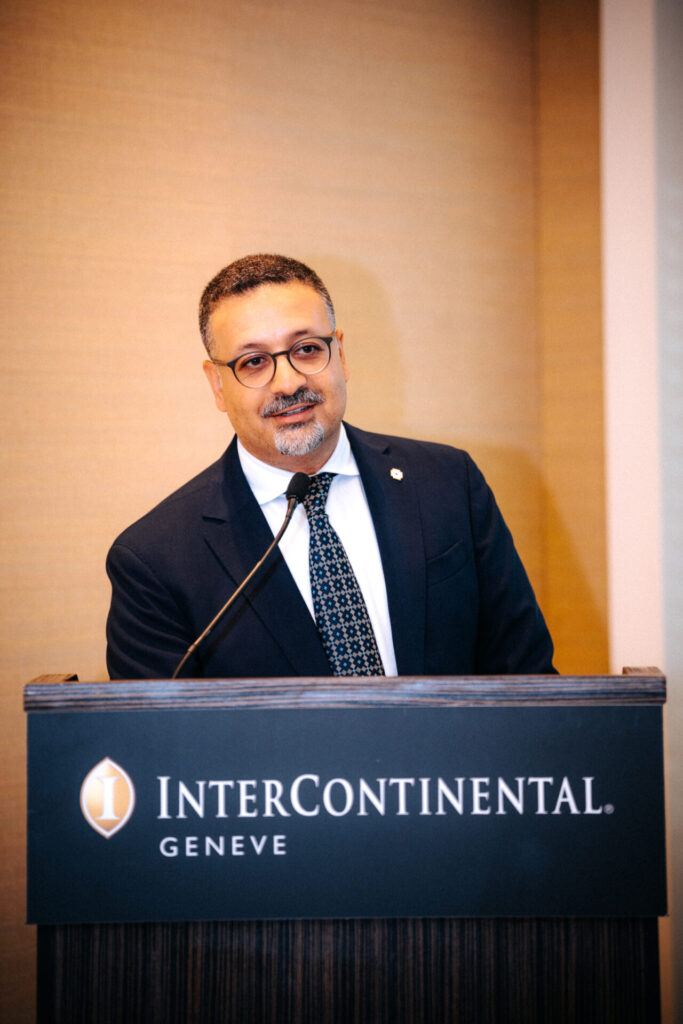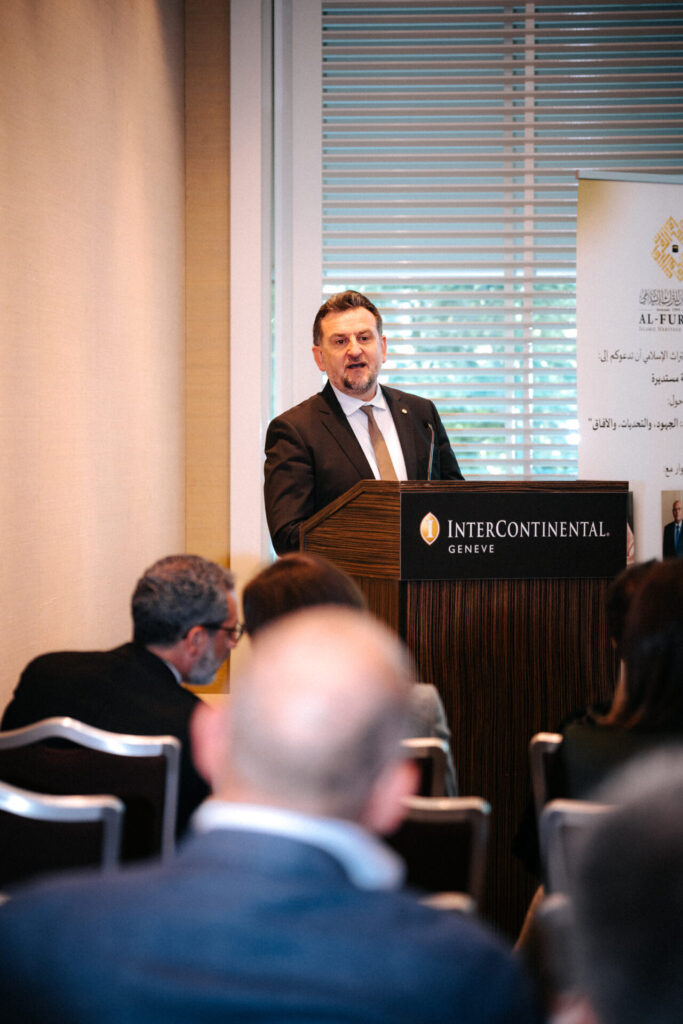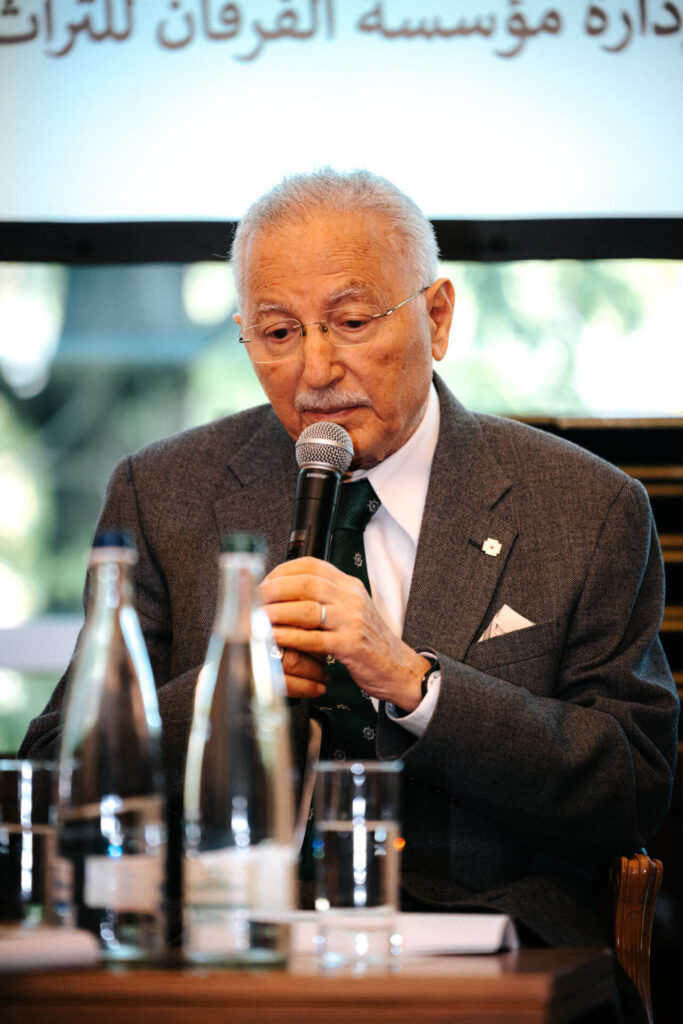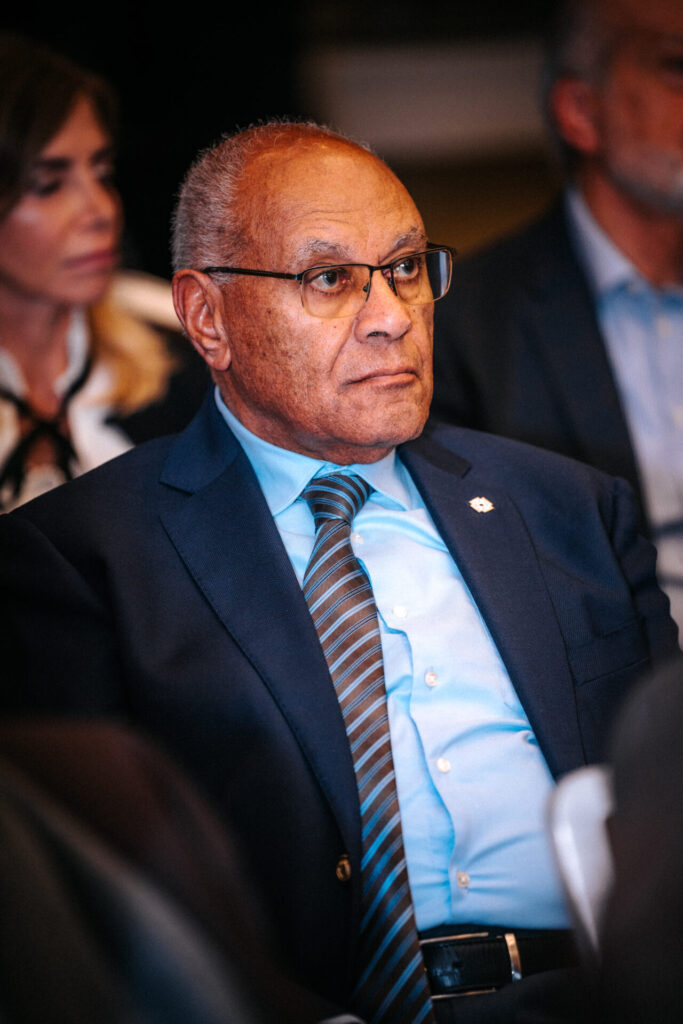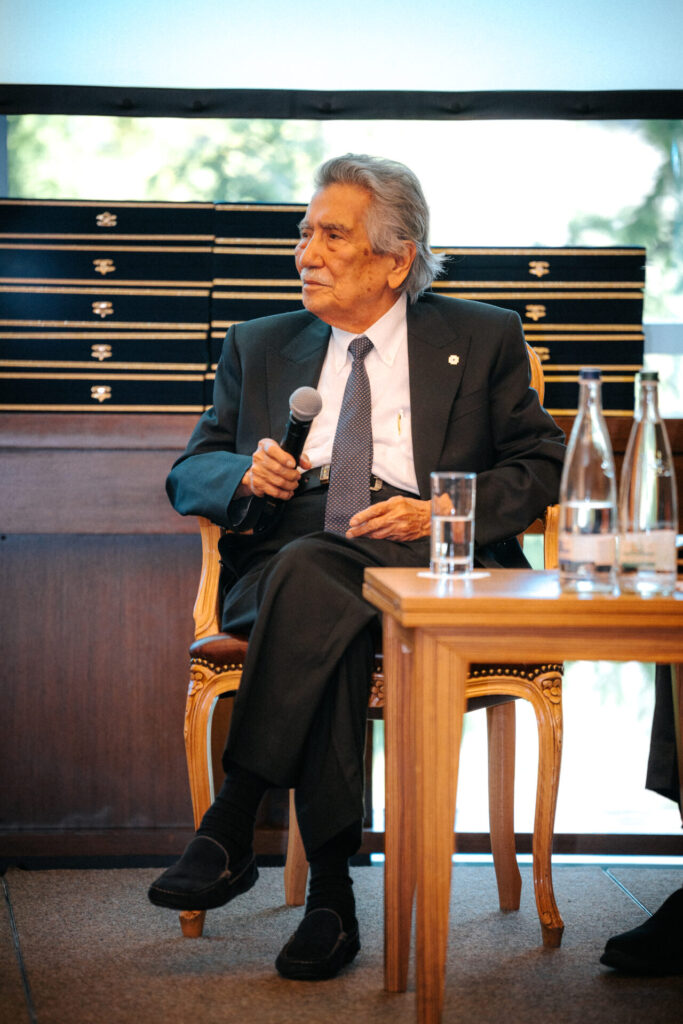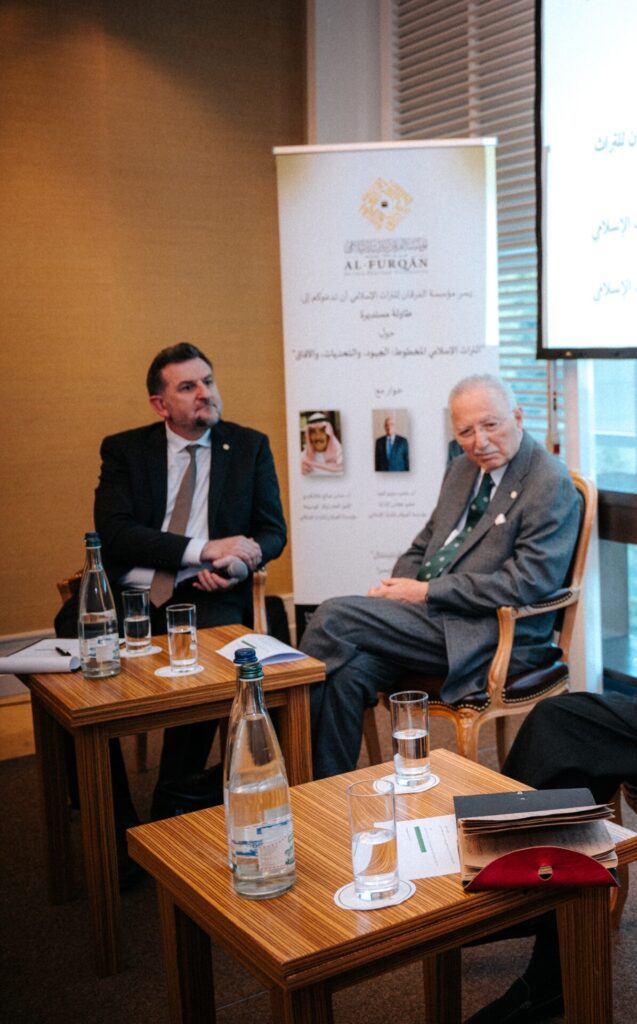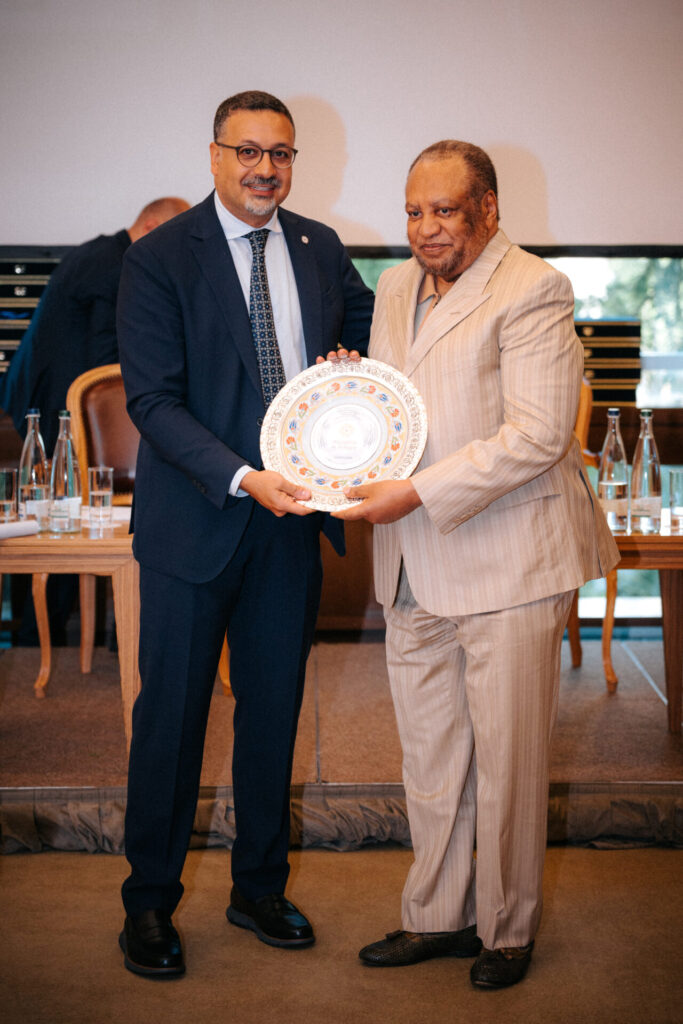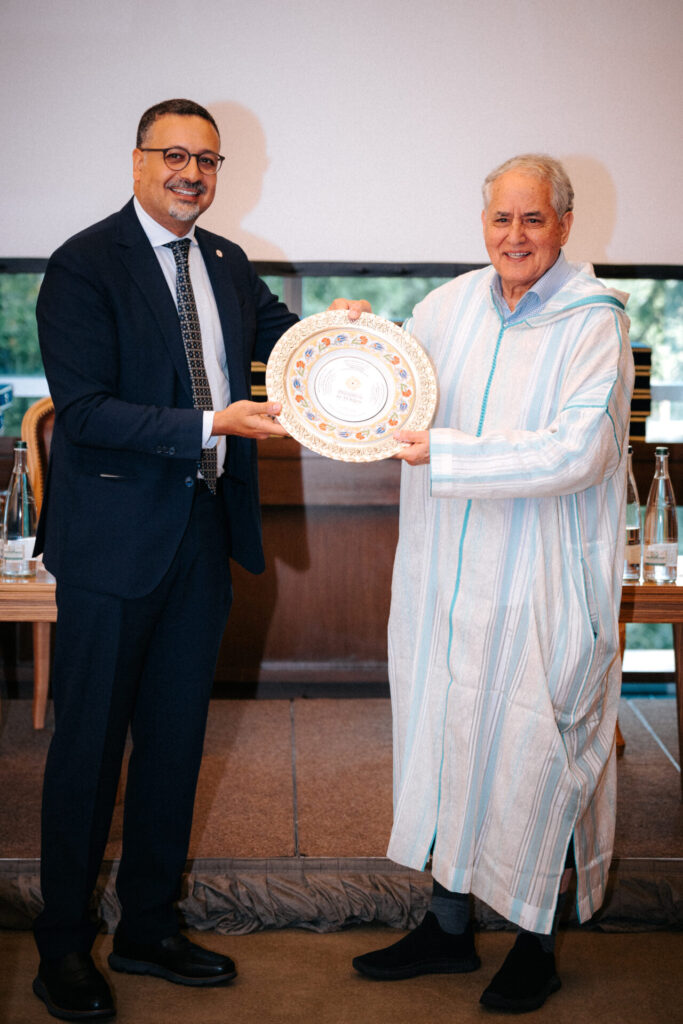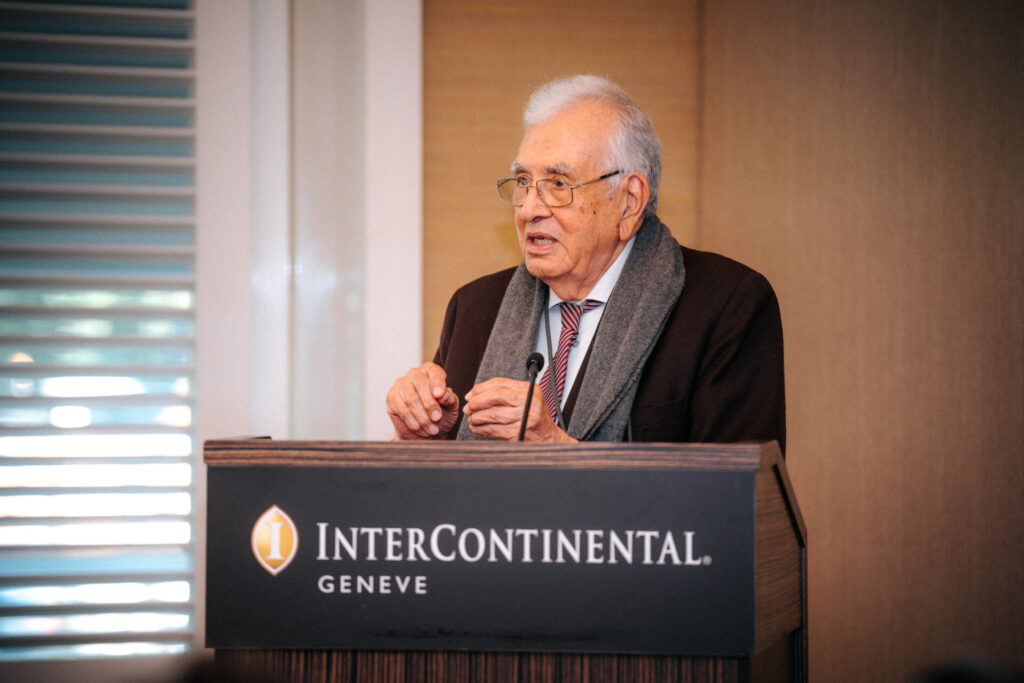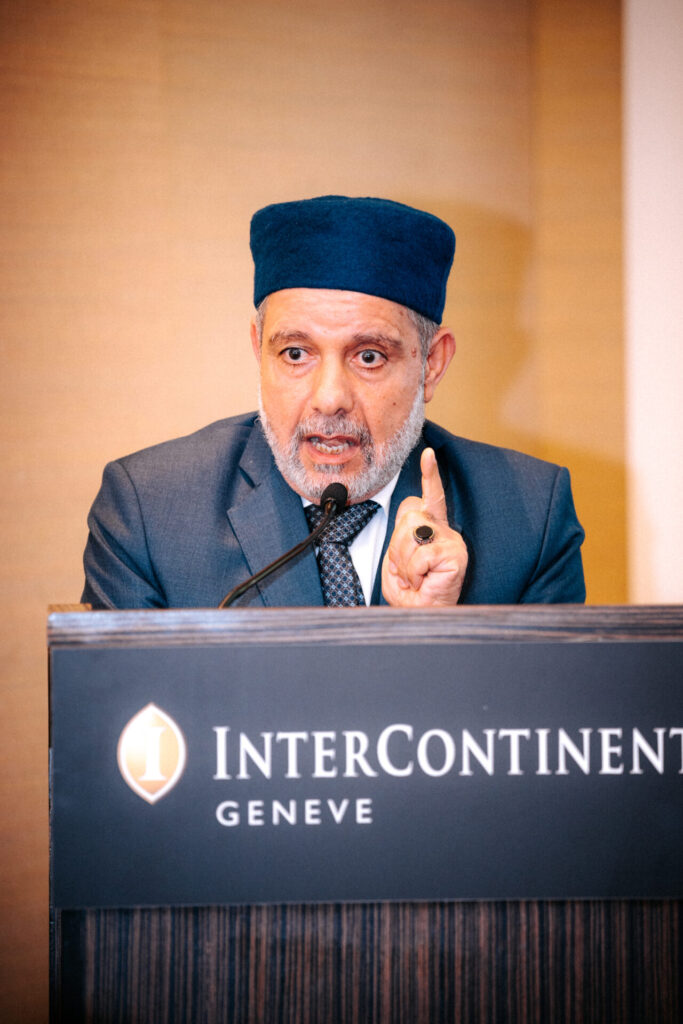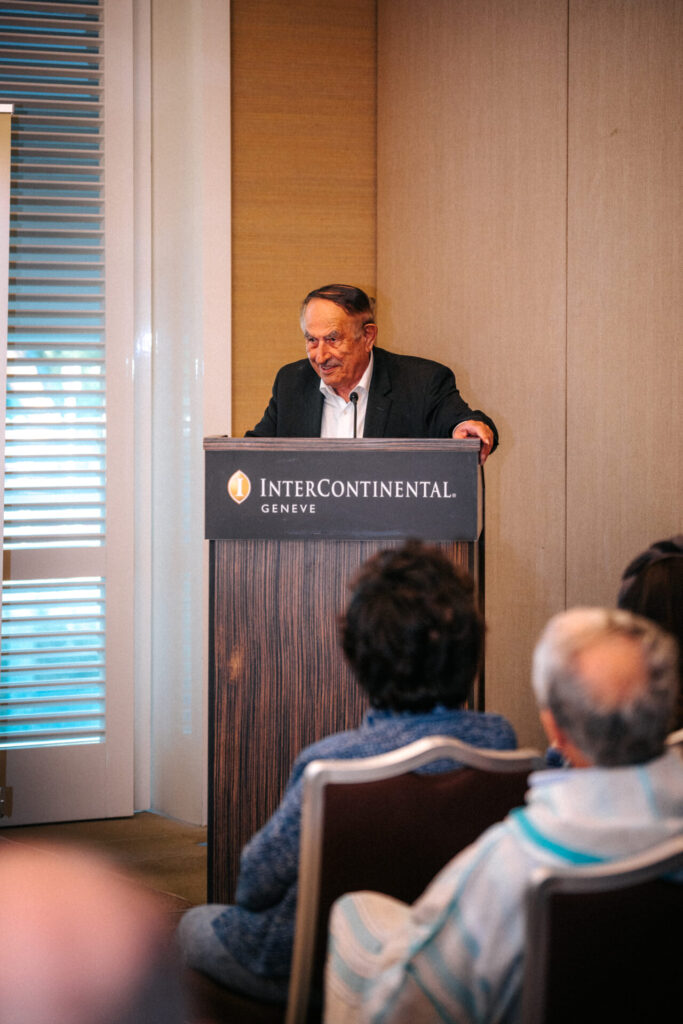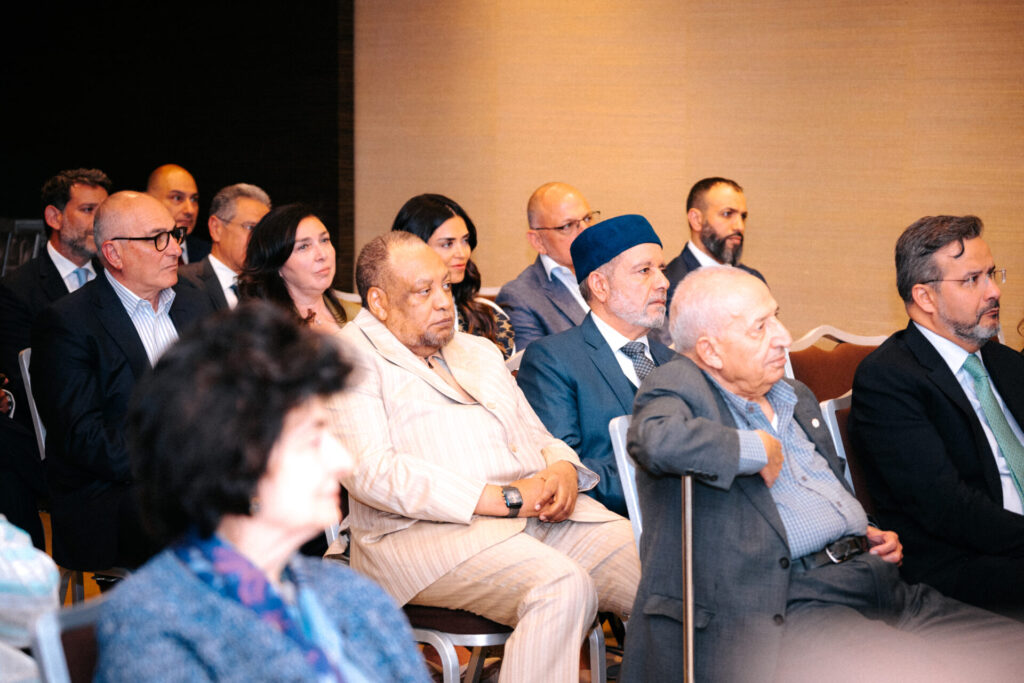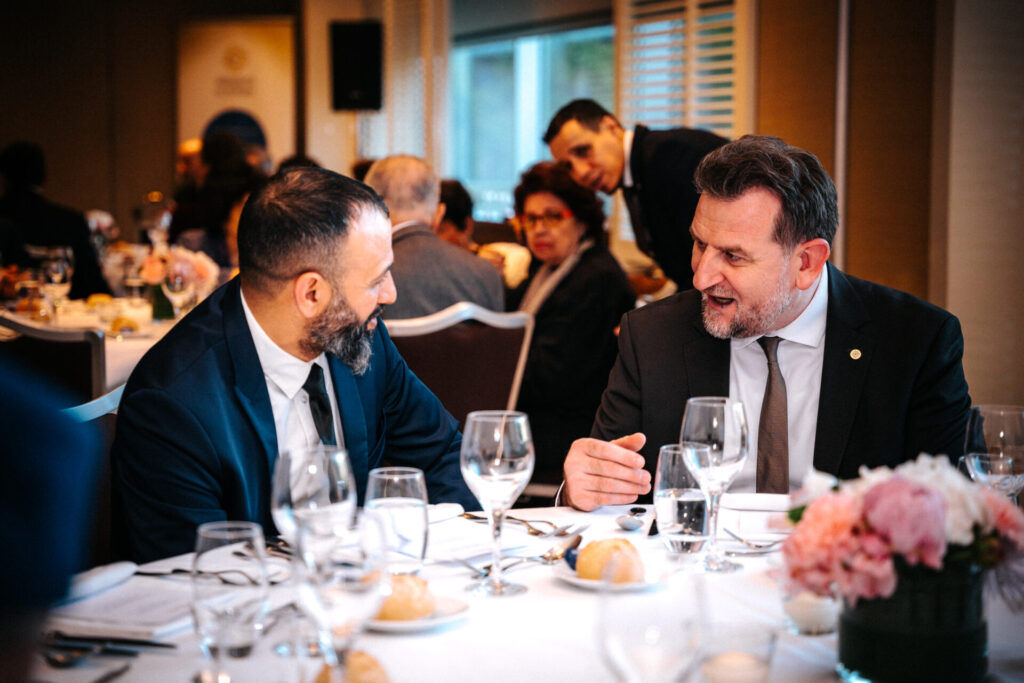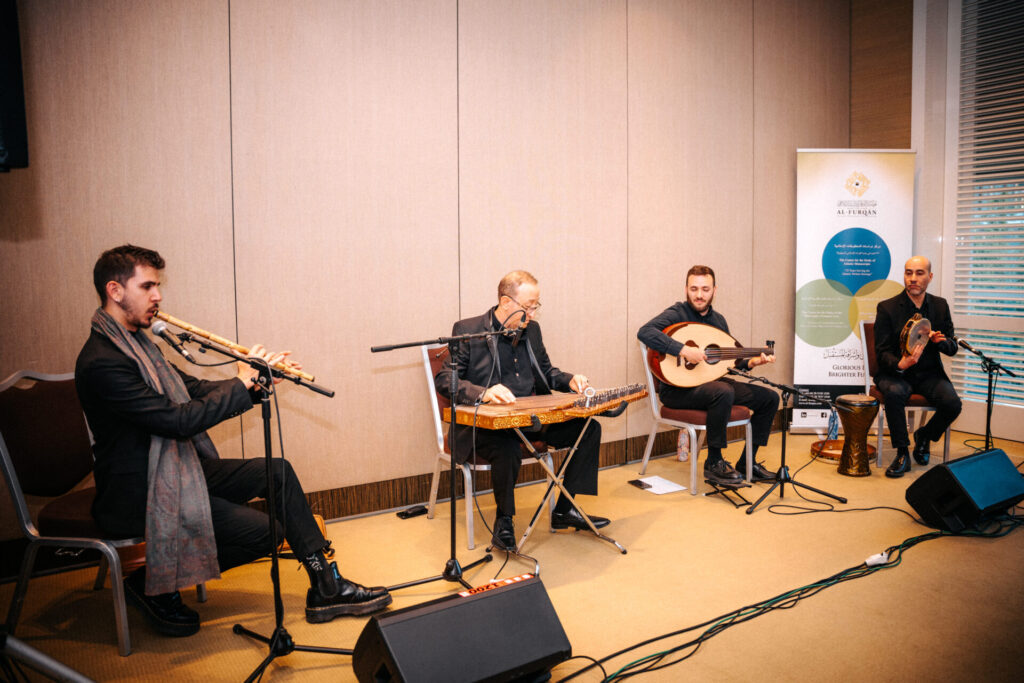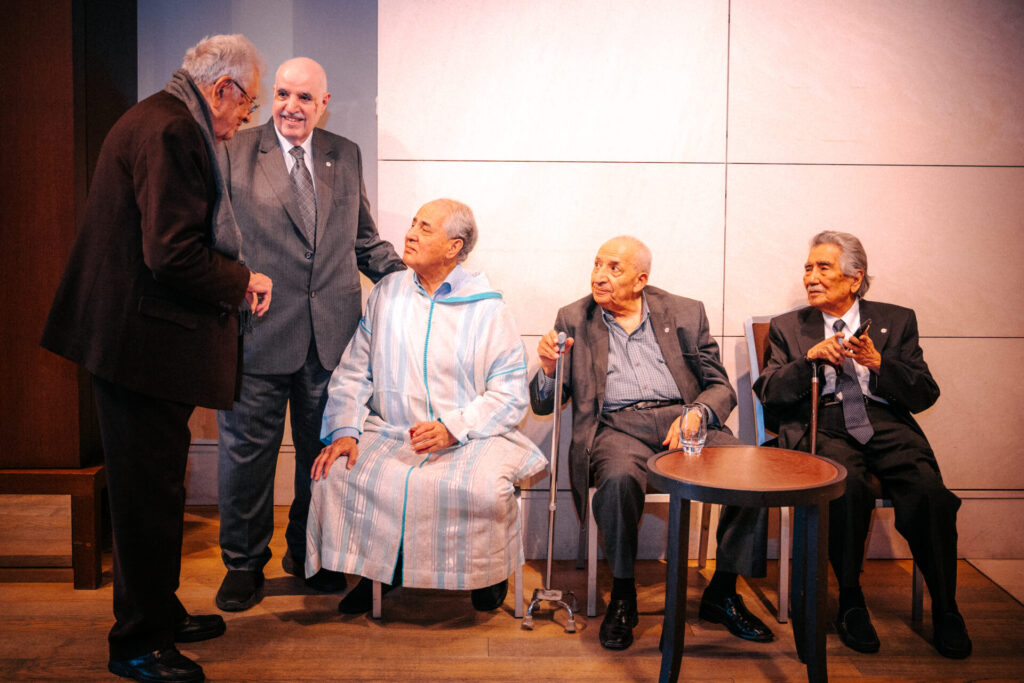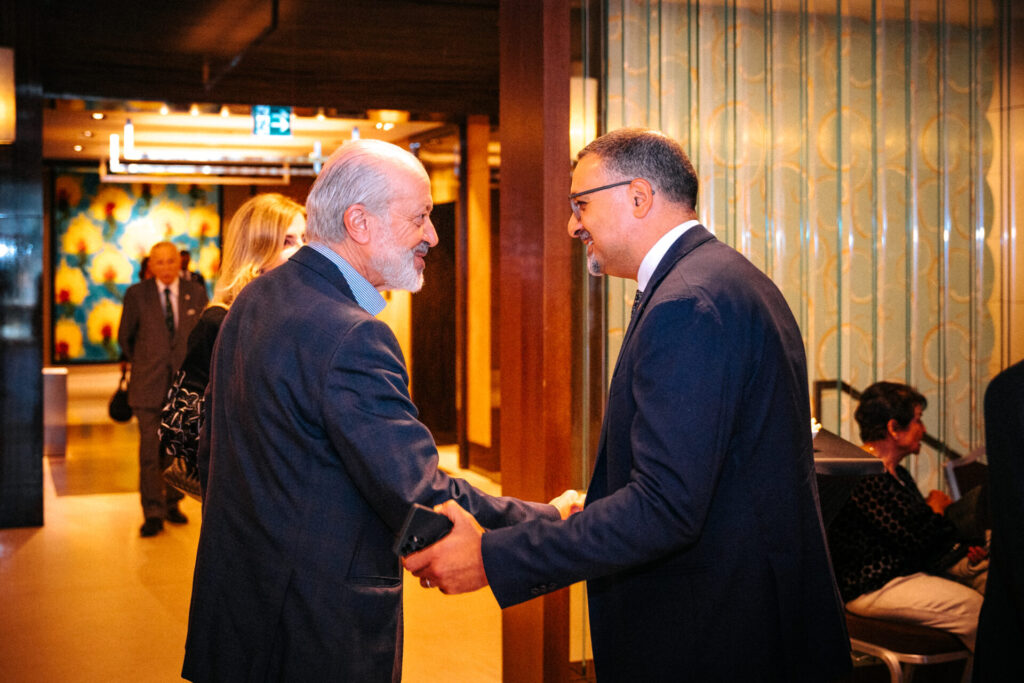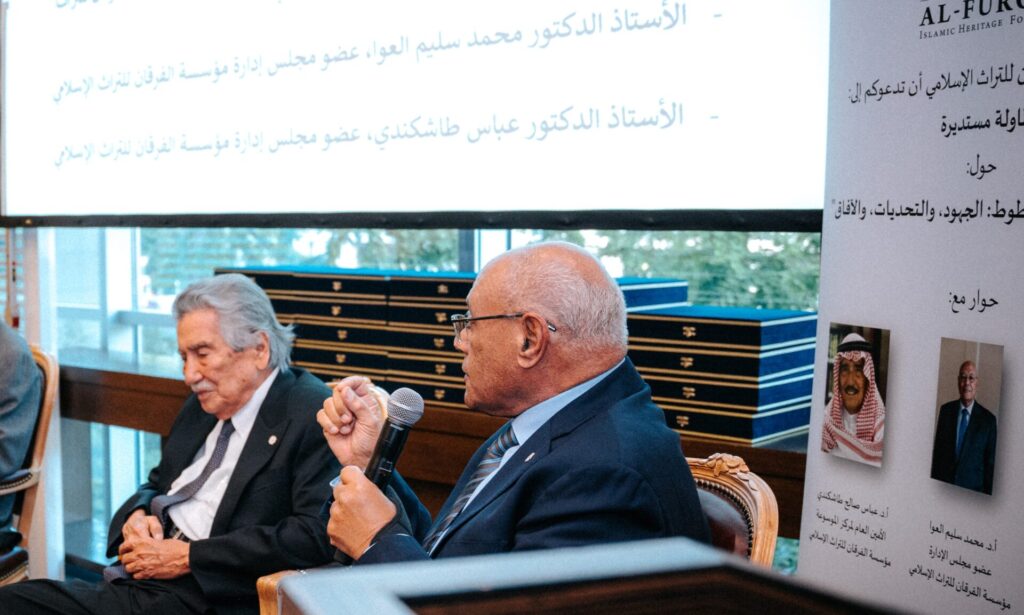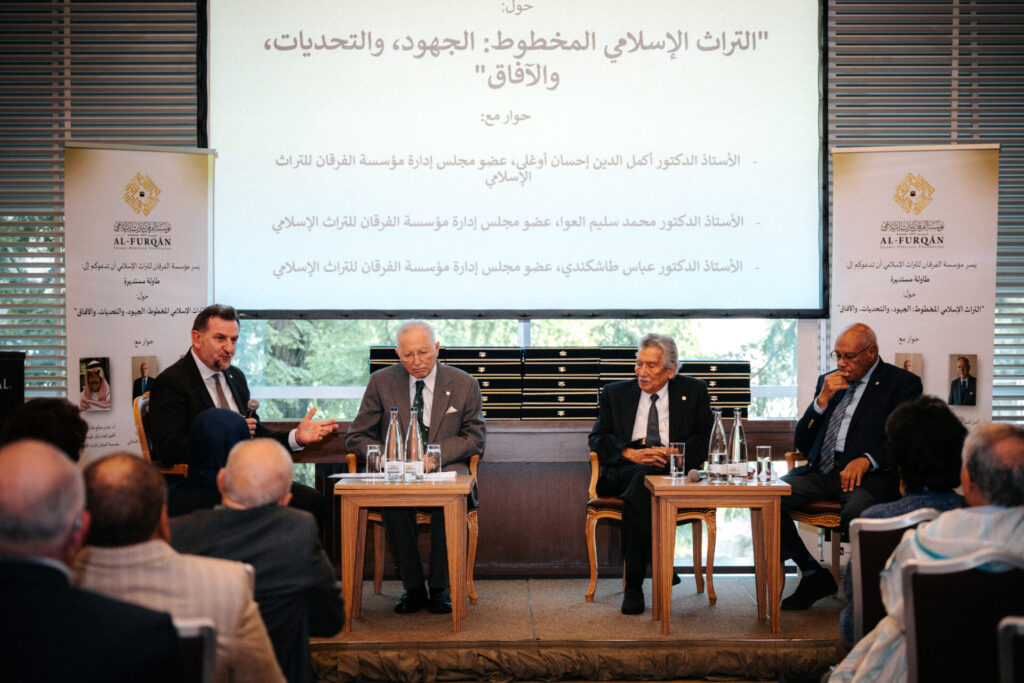
Al-Furqan Islamic Heritage Foundation organised a roundtable/open dialogue discussion entitled "Islamic Written Heritage: Efforts, Challenges, and Prospects". The event was held in Geneva, on Wednesday, May 14, 2025, on the sidelines of the meetings of the Foundation's Board of Directors, and the Advisory Boards of the Foundation's Manuscript Centre and Maqasid Centre.
The panellists were Professor Ekmeleddin Ihsanoglu and Professor Muhammad Salim al-Awa, members of the Al-Furqan Foundation's Board of Directors, and Professor Abbas Tashkandi, Secretary General of the Foundation's Encyclopedia Centre. The session was chaired and moderated by Mr. Sali Shahsivari, Managing Director of Al-Furqan Islamic Heritage Foundation.
This event was held at the Intercontinental Hotel in Geneva, Switzerland, in the presence of Professor Brahim Chabouh, Professor Muhammad Adnan Al-Bakhit, Professor Bashar Awad Marouf, Professor Ahmed Shawqi Binebine, and Professor Abdullah Yousef Al-Ghunaim (members of the Advisory Board of the Centre for the Study of Islamic Manuscripts at Al-Furqan Islamic Heritage Foundation); Professor Issam Ahmed Al-Basheer and Professor Noureddine Khadimi (members of the Advisory Board of the Centre for the Study of the Objectives of Islamic Law at Al-Furqan Islamic Heritage Foundation); Mrs. Tamam Yamani, wife of His Excellency Sheikh Ahmed Zaki Yamani; and Mr. Hani Yamani, Dr. Mai Yamani, Mr. Faisal Yamani, and Mrs. Sarah Yamani (members of the Yamani Cultural and Charitable Endowment Foundation); as well as other members of the Yamani family, and other guests.
In his welcoming remarks, Mr. Sharaf Ahmed Zaki Yamani, Chairman of the Board of Directors of Al-Furqan Islamic Heritage Foundation, recalled the purpose of establishing the Foundation by his late father, Sheikh Ahmed Zaki Yamani (may God have mercy on him). He noted that his father had "dedicated his life to serving this great heritage, believing it to be an indispensable pillar of civilisation for building the future. He viewed inherited knowledge as a light that revives, not a burden that is forgotten. He resolutely sought to preserve this intellectual treasure, which has left a profound impact on all civilisations."
Mr. Sharaf Yamani praised the efforts of his father's companions in making Al-Furqan a success, saying they are "the loyal leaders of the Foundation and the passionate advocates of its mission, who witnessed its inception and laid its first foundations. They continue to carry its message today. They were and remain the pillars of this edifice, partners in its vision, and guardians of its message. They have our utmost appreciation and gratitude."
In his opening remarks, Mr. Sali Shahsivari, Managing Director of Al-Furqan Islamic Heritage Foundation and moderator of the session, provided a brief overview of the speakers and the topic under discussion. He then proceeded to ask each speaker questions about their involvement in Islamic heritage in general, and their journey at Al-Furqan Foundation in particular. He also addressed various aspects related to the importance of studying Islamic manuscript heritage, the efforts made, the challenges faced, and future prospects.
Professor Ekmeleddin Ihsanoglu noted that Al-Furqan was the first non-governmental organisation to devote such great attention to Islamic manuscript heritage. He added that Sheikh Ahmad Zaki Yamani (may God have mercy on him) made the fruits of this organisation available to all, and not limited to specific individuals or family.
Professor Ihsanoglu pointed out that the Foundation's early days focused on manuscripts because Islamic civilisation is a civilisation manifested in manuscripts. Consequently, the Foundation's focus was on manuscripts that were at risk or in danger. He also touched upon the importance of studying Islamic manuscript heritage from the perspective of the philosophy and history of science.
Professor Abbas Tashkandi spoke about the beginning of preparations for the encyclopedia project, when Sheikh Ahmed Zaki Yamani (may God have mercy on him) invited him to join him in a mission that serves Islamic heritage in general, and the heritage of the two holy cities – Mecca and Medina – in particular. He noted that the idea of "Al-Furqan and its affiliated centres began in Mecca." He also emphasised that the "Encyclopedia of Mecca and Medina" has become an exemplary school in its field.
Professor Muhammad Salim Elawa spoke about Sheikh Ahmed Zaki Yamani's (may God have mercy on him) idea to establish a Centre for Maqasid (the Study of the Objectives of Islamic Law), with the aim of "reviving the Maqasid thought among Muslims first, and then disseminating this thought to the entire world, for it is a thought upon which all human progress depends."
Professor Elawa also called for more attention to be paid to "described manuscripts," which include "millennium manuscripts" (manuscripts dating back more than a thousand years), "explanatory manuscripts" (which contain additions, explanations, or summaries), "translated manuscripts," and "rare manuscripts."
At the conclusion of the event, a commemorative shield was presented to all members of the Al-Furqan bodies as a token of appreciation and gratitude for their efforts, and commemorating the thirty-fifth anniversary of the founding of the Centre for the Study of Islamic Manuscripts (1988-2023), the thirtieth anniversary of the founding of the Encyclopedia of Makkah and Madinah (1994-2024), and the twentieth anniversary of the founding of the Centre for the Study of the Objectives of Islamic Law (2005-2025).
A dinner was held following the event in honour of the professors and guests.
